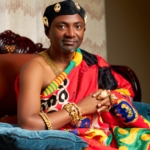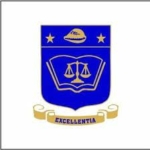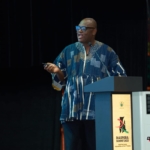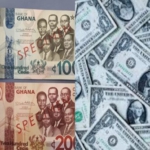
A quiet revolution in development finance is unfolding in East Africa, and it holds the key to unlocking Ghana’s next chapter of growth. While we in Ghana are rightly focused on managing debt and restoring economic stability, we must also lift our gaze to the horizon—to the future we want to build. The question is not just how we manage our finances today, but how we will fund our dreams tomorrow.
Ethiopia’s Grand Ethiopian Renaissance Dam (GERD) is more than a source of energy; it is a source of a powerful new idea. Its most revolutionary concrete was not poured into the Nile, but into its financial model: a citizen-bond scheme that allowed a nation to build its single most important asset on its own terms, funded by its own people.
Ghana does not need to replicate the GERD. We need to replicate its philosophy and adapt its model for a 21st-century Ghana. We need our own “Citizen-Financed Renaissance.”
This is not about asking for sacrifices. It is about offering ownership. The old model is a government taxing its people to build infrastructure. The new model is a government inviting its people to invest in infrastructure that generates both national pride and a solid financial return.
Imagine a new asset class: “National Legacy Infrastructure.” These are specific, revenue-generating public assets crucial for our future. Not monuments, but engines of growth:
- The Ghana Digital Gateway: A public-owned, open-access national fibre optic spine reaching every district capital, with wholesale capacity leased to all telcos. This would democratize data, drive down costs, and create a sovereign digital highway.
- The Nutrifood Belt Irrigation Network: A large-scale, modern irrigation system transforming the Northern Regions into a guaranteed food basket for West Africa, securing our food sovereignty and creating wealth in the savannah.
- The Atlantic Shield: A network of climate-resilient sea defense and land reclamation projects to protect our coastal cities and create new, planned urban spaces.
How would this work? By launching a Ghana Sovereign Wealth Fund (GSWF), seeded not by oil, but by people.
The government would legislate the creation of the GSWF as an independent, transparently managed entity. The Fund would then issue “Renaissance Investment Certificates” (RICs) to the public. This is where we modernize the Ethiopia model:
- Digital-First: Citizens and the diaspora could purchase and trade RICs for as little as GHS 100 or $20 via a simple mobile money and app-based platform, making it the most accessible national investment ever.
- Project-Specific Transparency: Each certificate is tied to a specific project. Investors can use the app to track real-time construction progress, budgets, and even view live camera feeds from the site. “You invested in the Digital Gateway? Here is the fibre being laid in Wa today.”
- Dual Returns: Investors earn a competitive, inflation-adjusted annual dividend from the project’s revenue (e.g., leasing fees from the digital gateway, proceeds from irrigated farmland sales). Their second dividend is the profound pride of being a nation-builder.
- Diaspora as Cornerstone: The diaspora wouldn’t just be donors; they’d be strategic investors. Their foreign currency investment would be a critical stabilizer for the fund.
The benefits are transformative. It crowds-in domestic investment instead of crowding out the private sector with government debt. It creates a potent new savings vehicle for Ghanaians, backed by real national assets. Most importantly, it restores agency. It allows Ghana to build what it needs, on its own schedule, free from the policy conditionalities of external loans.
The Ethiopia model proves this is not a fantasy. It is a viable, powerful alternative. The call to our leaders is to be bold architects of this new system. Draft the legislation for the Ghana Sovereign Wealth Fund. Choose the first flagship project. Build the digital platform. Present a clear, trustworthy, and compelling vision to the people.
Our greatest national resource is not gold, cocoa, or oil. It is the shared ambition and ingenuity of 33 million Ghanaians and our millions of brothers and sisters abroad. Let us harness it not just for stability, but for greatness. Let us move beyond aid and beyond debt. Let us build a citizen-financed future.
The time for a Ghanaian Renaissance is not in the past. It is now.




